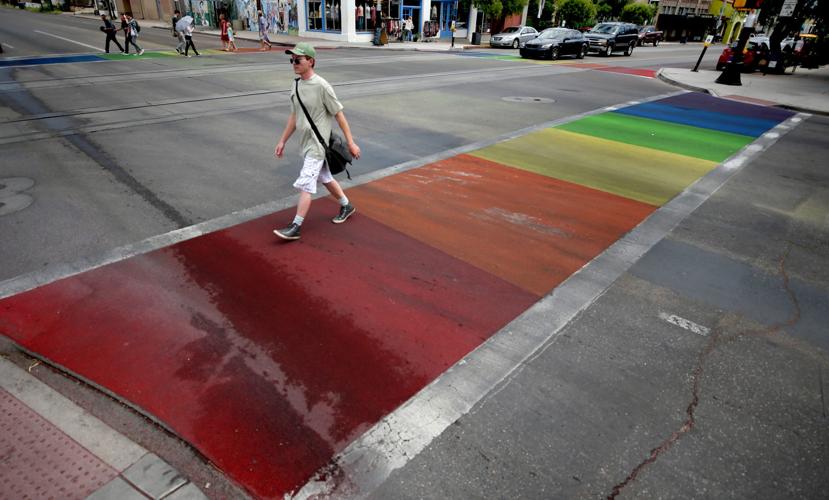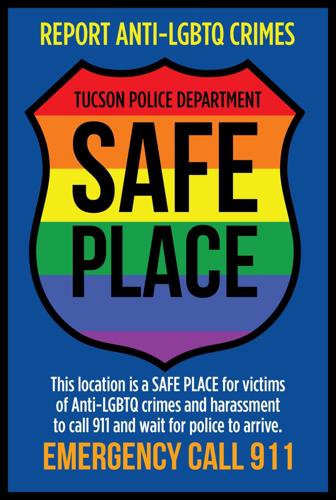After years of dormancy, the Tucson Police Department is reviving its Safe Place program, which aims to provide a sense of security for victims of hate crimes.
The TPD Safe Place program was originally launched in the fall of 2016. Under the program, TPD partnered with local businesses to train them to be safe places for LGBTQ people who have been the victims of bias-related crimes. While at one of these businesses, victims can then wait for police.
Businesses can display signs featuring a police badge with rainbow colors on it and the words “SAFE PLACE” in large, black letters to indicate they are a safe place.
The initial 2016 launch of the program concentrated in the North Fourth Avenue area. It was well-received by the community, said Lavina Tomer, who chairs Southern Arizona Senior Pride.
“People were very excited about it and interested in it and handing out the stickers and saying ‘look for the stickers on Fourth Avenue,’” Tomer said.
However, the program faced setbacks when the original officers in charge of the program were moved to different divisions.
“It was never really expanded past (Fourth Avenue,) from my knowledge,” TPD Detective Gilbert Martinez said. “And then it kind of went to the wayside, unfortunately.”
Martinez is one of the detectives tasked with reviving the program. He and another detective traveled to Seattle last week to train with the founder and coordinator of the Seattle Police Department’s Safe Place Program, Officer James Ritter.
Ritter launched the SPD Safe Place program in 2015, after becoming the department’s first full-time liaison with the city’s LGBTQ community, according to the program’s website. Since then, SPD has partnered with, and trained 12 different departments in the United States and Canada.
Though they share similar names, these programs are not connected to the National Safe Place program, which was launched in 1983 to provide safe locations for teenagers in crisis. The National program also has businesses display signs to advertise that they are secure locations. For clarity, the police department’s LGBTQ Safe Place programs often include their department’s initials ahead of the program.
The officers who originally led the program in Tucson shadowed Seattle officers in 2016. Since then, Seattle’s program has expanded to handle other bias crimes, particularly those against religious groups, according to Martinez.
Both Martinez and Tomer regard Tucson as a relatively safe place for LGBTQ people. The Human Rights Campaign gave the city a score of 100/100 on their Municipal Equality Index, which evaluates a city’s protections in place to protect the LGBTQ community.
However, that does not mean that LGBTQ Tucsonans are completely free from bigotry and danger.
Tomer speculated that one of the reasons Fourth Avenue was chosen as the original focus of the program was because it’s a place where LGBTQ people have been attacked before. Possibly the most well-known LGBTQ hate crime in the city was the June 2002 killing of Philip Arthur Walsted, who was beaten to death near his University of Arizona-area home.
“What I want people to know is, Tucson is an LGBTQ supportive city and in spite of that, we are still victims of hate crimes, harassment, murders, violence and that we appreciate all of the protection and development of more safety in our community for all of our marginalized communities,” Tomer said.
According to Martinez, just like the first launch in 2016, TPD has seen excitement and a willingness to get involved from the community.
“It was kind of a positive response that we got from them, that they’d like to see it be re-implemented and we’ve actually gotten a lot of responses about business that actually want to get involved in that,” Martinez said.
For now, the department is waiting to train business owners and communities members until after the officers themselves have gone through the training in Seattle and feel they fully understand the program, according to Martinez.





